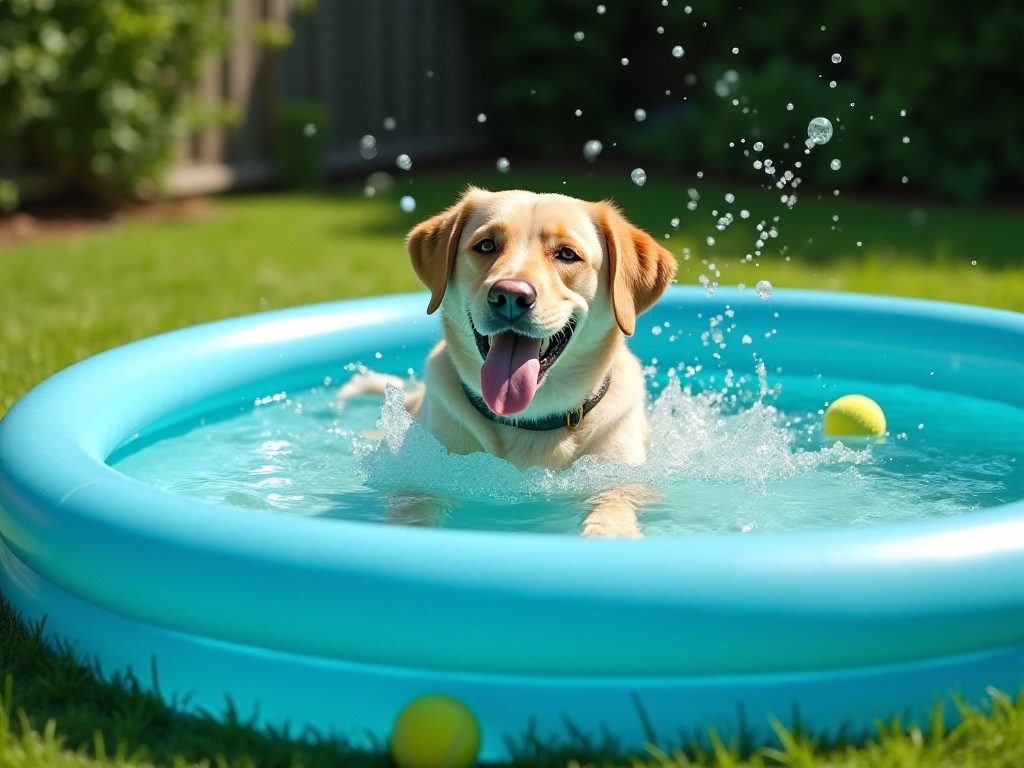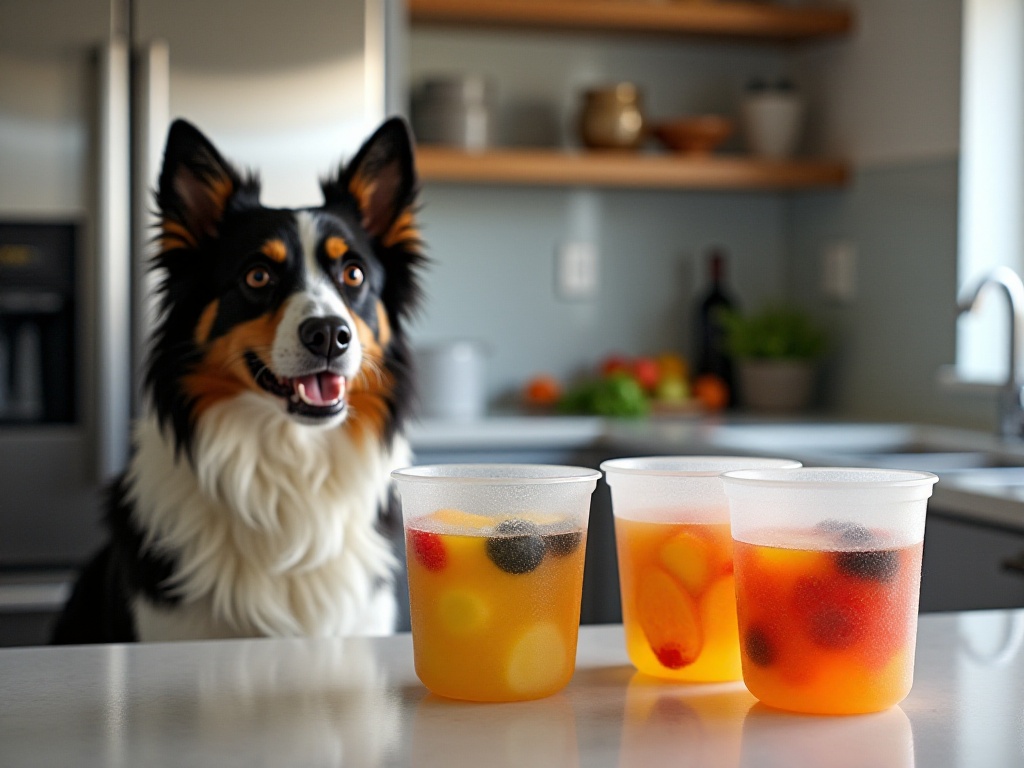Introduction
My Shiba Inu just turned three, and watching it run happily around the house fills me with warmth. As a pet owner who started from scratch, these three years have been filled with both laughter and tears. Looking back at how clueless I was initially, I can now confidently handle things on my own. Today, I want to share my accumulated pet care experience, especially with those who are just starting or planning to become pet owners.
Scientific Feeding
When it comes to pet care, feeding is the most fundamental and important aspect. I remember when I first brought my Shiba home, I found its voracious eating adorable and thought this child really had a good appetite. However, it wasn't long before digestive issues appeared, with burping shortly after eating and even vomiting.
Later, I discovered a particularly useful trick: placing a tennis ball or special slow-feed ball in the food bowl. This forces the dog to eat around the ball, preventing it from stuffing its mouth. Initially, my Shiba wasn't used to it and would try to paw the ball out, but gradually adapted. Now its eating speed has significantly slowed down, and digestion has improved.
Regarding portion size, this is truly a common pitfall for new pet owners. I used to think that eating more meant growing faster, isn't that good? But during a check-up, the vet said my Shiba was overweight. Being overweight seriously impacts dogs' health, not only potentially causing arthritis, heart disease, diabetes, and other illnesses but also severely affecting their mobility and quality of life.
Now I strictly control portions based on weight and age, and regularly weigh my dog. If I notice a weight increase trend, I immediately adjust the food amount. Treats must also be moderated, and I can't give in to those pitiful puppy eyes. Now I mainly give my Shiba low-calorie treats like carrot sticks and apple slices, which satisfy its desire for treats without excessive calories.
Oh, and there's another crucial point: dogs' water intake. Many people might not know that dogs are particularly prone to dehydration. My Shiba wasn't keen on drinking water, but I discovered it really likes moving water. So I bought a pet water fountain, and now with the water constantly circulating, it drinks much more frequently. Plus, the fountain has a filter function that removes impurities and fur, which is really practical.

Seasonal Care
Each season requires different care focuses, which is really important. I now prepare different care products and plans according to the season.
Summer's priority is heat prevention and cooling. Besides freezing toys in ice blocks, I also have a special cooling mat. I remember last summer was particularly hot, and my Shiba especially loved napping on the cooling mat. Also, walking times need special attention in summer - I generally choose early morning and evening when temperatures are lower, and absolutely avoid walks during the scorching midday sun.
Speaking of heat protection, there's something many people often overlook: sunscreen. Yes, dogs need sunscreen too! Especially white or short-haired dogs who are more susceptible to sunburn. I always spray my Shiba with special pet sunscreen, particularly on areas like ears and nose. Though reluctant at first, it's now used to it and even actively lets me help spread it evenly.
In winter, besides paw protection, warmth is crucial. Although dogs have fur, they still need extra warmth in particularly cold weather. I've prepared several clothes of different thicknesses for my Shiba, choosing based on temperature. Especially when using indoor heating, which can make the air quite dry, I use a humidifier to maintain appropriate humidity to prevent my dog's skin from becoming dry and itchy.
Spring and autumn are peak shedding seasons, making brushing the most important task. I now brush my Shiba twice daily using a special deshedding brush. Brushing not only removes dead fur but also promotes blood circulation, helping new fur grow healthier. Plus, brushing time is a great opportunity for interaction - my Shiba now really enjoys grooming time and eagerly runs over whenever it sees me take out the brush.

Daily Cleaning
Cleanliness is truly an eternal topic. Besides using rubber gloves to clean fur, I've discovered many other useful cleaning tips.
Take bathing, for instance. Many might think frequent baths are better for dogs, but that's not the case. Too frequent bathing can actually damage dogs' natural skin barrier, leading to skin problems. I now determine bath frequency based on my Shiba's actual condition, usually once a month unless it gets particularly dirty.
Water temperature during baths is also crucial. I always test the water with my elbow to ensure it's lukewarm, neither too hot nor too cold. Shampoo must be specifically for dogs, as human shampoo is too harsh for their skin. It's also essential to put cotton balls in their ears to prevent water from entering the ear canal. After bathing, thoroughly dry with a towel, especially in areas prone to retaining water like ears and armpits.
Regarding odor elimination, besides using baking soda for urine stains, I've found white vinegar is also an excellent deodorizer. Spraying diluted white vinegar on smelly areas eliminates odors once dry. Plus, vinegar is natural and won't harm dogs.
Toys and bedding also need regular washing. I now wash my Shiba's toys and bedding weekly with mild detergent and air dry them. This maintains cleanliness and prevents bacterial growth.

Preventive Healthcare
Preventive healthcare is truly one of the most important aspects of pet care. Besides regular check-ups, I pay special attention to observing my Shiba's daily condition. This includes eating habits, bowel movements, energy levels, etc., and I promptly take it to the vet if I notice anything unusual.
Vaccinations are essential. I take my Shiba for timely vaccinations, including rabies and other necessary shots. Although vaccinations cost money, compared to treatment costs for illness, they're absolutely worth it.
Deworming is also crucial. My Shiba gets internal and external deworming every three months. External deworming prevents fleas and ticks, while internal deworming prevents various parasites. Initially, I thought such frequent deworming wasn't necessary, but after learning about the severe harm parasites can cause dogs, I never slack off anymore.
Dental care can't be neglected either. I now brush my Shiba's teeth daily with special dog toothbrush and toothpaste. Though very resistant at first, I would reward it after each brushing, and slowly it accepted it. Now it's become a habit, actively waiting for tooth brushing every evening.

Behavioral Training
Training truly requires exceptional patience. I remember when I first started training my Shiba, it completely ignored commands, and I almost gave up. Later, I learned to use positive reinforcement, immediately rewarding correct behaviors, and gradually it understood what constitutes good behavior.
For basic command training like "sit," "down," "stay," I train at fixed times daily, never exceeding 15 minutes per session. Dogs have limited attention spans, so longer training sessions aren't more effective. Also, training must be done when the dog is energetic - if they're already tired, training effectiveness significantly decreases.
Socialization training is also important. I often take my Shiba to dog parks to interact with other dogs. This helps it learn to get along with other dogs and develops its social skills. However, safety is paramount at the beginning - choose gentle-natured dogs as playmates.

Concluding Thoughts
Pet ownership is truly a continuous learning and growth process. I remember initially always worrying about not doing enough, afraid I couldn't take good care of my Shiba. But looking back now, dogs can sense when we care for them wholeheartedly.
My Shiba has brought so much joy to my life - seeing it wagging its tail to welcome me home makes even the toughest day worthwhile. It has taught me about unconditional love and loyalty, and helped me understand the importance of responsibility and persistence.
I hope these experiences can help more pet owners, allowing us to create better lives for our furry friends. Pet care indeed requires time and energy investment, but seeing them live healthily and happily makes all the effort worthwhile.
Lastly, every dog is unique, with different personalities and habits. So when trying new methods, always observe your dog's reactions to find what suits them best. After all, our goal is to make their lives better, not to conform to some standard.
Having a pet is truly a heartwarming experience; their presence makes our lives more complete. I hope everyone who chooses to have a pet can create beautiful memories with their furry friends.


